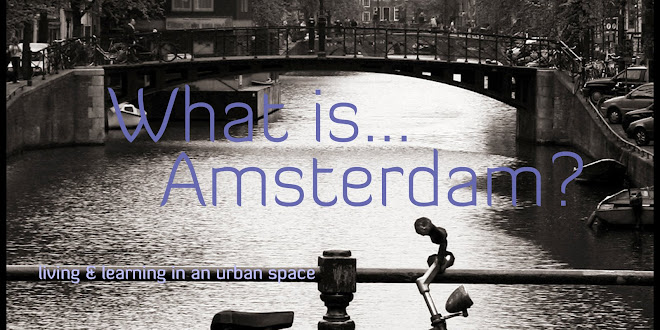The title “Submission” did not surprise me, but what did was that “Submission” is the English translation of “Islam.” An aptly named film, I soon realized.
With the stories all told by what I assume is the same actress, it took me a while to realize there are several different stories in there. Each was about the body; the women’s body to be exact. And the images shown were just as compelling as the tale being told.
Throughout the film, the body is shown painted with the verses from the Qur'an. In my opinion, it is a brilliant way of illustrating the forcing of the teachings from the Qur'an onto the beings of women. The nakedness and a sort of ‘unveiling of the body’ I found to be much more powerful, but also, more subdued and subtle. I found it mesmerizing and a beautiful form of (like I believe Jessica mentioned) art. The blend of the shadow and the burka, highlighted the bit of the face that was shown, reflects life of a Muslim women, but is also effective as part of the composition. In the story of a woman receiving 100 lashes for being guilty of adultery and fornicating, the body is shown, marked with lashes, and of course, painted with the words of the Koran. The story of the women physically abused by her husband shows images of a body, beaten and slumped. The visual imagery is definitely gripping. I wish I had watched it as a silent film first, and then learn the story of the women.
[On a side note, I just realized I started out using “Qur'an” but then switched to “Koran.” Which is correct? …proper/PC/more generally acceptable…does it matter?]
What shocked me more than the stories was my lack of extreme reaction to this film. None of these stories were “new” to me, and while I am still disgusted beyond words by such treatment of women, I don’t have much to say regarding the content itself. What in the past would have gotten disbelief and anger, I can only muster up a shrug of the shoulders and a “that doesn’t surprise me.” I guess I have just become accustomed and somewhat emotionally drained. The questions that this film sparked were mostly regarding the side that did not have a voice in the film, the men. While I recognize the power of creating shock and controversy, especially when bringing the issues of the suppressed into the light, I really just want to have a better understanding of the complex culture and ideology that spawned all this.

1 comment:
Fiona, Your post is extremely evocative, but I will forgo for the moment remarking upon its aesthetic virtues. (The question of silent film is interesting, especially given the use of sound in Fitna--the final sound of tearing paper; thematically the issue would have to do with having a voice and being heard.)
Dylan too remarks upon what I have taken to be the loop of shock and boredom in modernity: in 1903 the sociologist Georg Simmel was already remaking in "The Metropolis and Mental Life" on "the blasé attitude" he saw as typical of urban living. He saw it as a defense mechanism: the organism (that would be you) gets overtaxed by constant stimulation from the outside world and becomes innured to it, like wearing out batteries. (I've taught a course on boredom, believe it or not, and find it fascinating.)
Your question about the transliteration of the word Koran/Qur'an is good, and I will refer it to a colleague, cc-ing you. Even once we get the answer, the connotations of the word's transliteration into Dutch would be another issue. I note that in order to highlight the importance of acknowledging different contexts. Since our immediate one is American, let's start there. Stay tuned.
Post a Comment